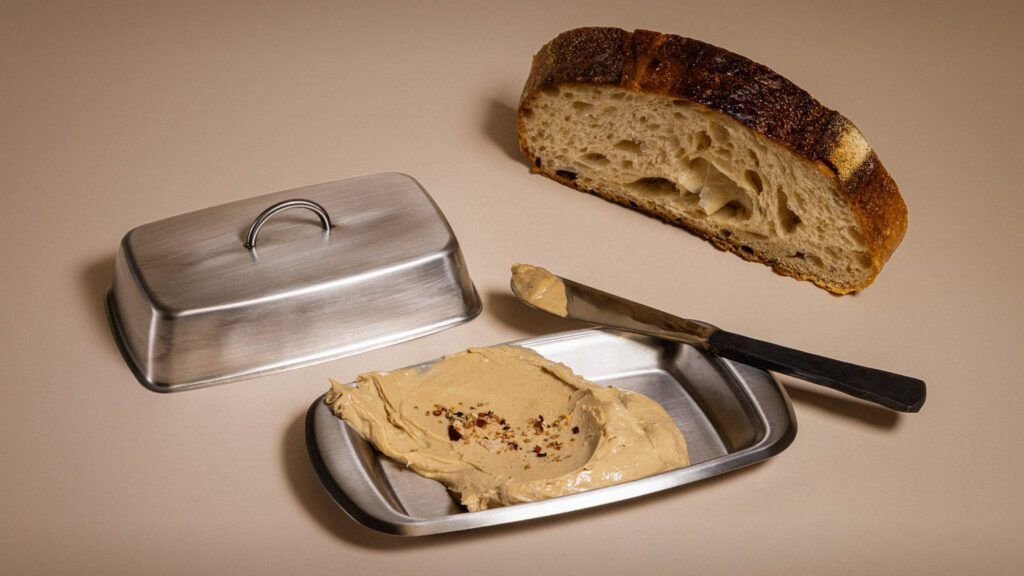
Australian food tech leader Vow has made its cultivated meat products available for at-home use, including foie gras, a smoked spread, and croquettes.
After months of Vow-ing diners at some of Australia’s top restaurants, the cultivated meat startup is making its retail debut.
Under its consumer brand Forged, Vow has launched three direct-to-consumer products powered by its cultured quail, marking the first time consumers can buy multiple cultivated meat products for at-home use.
The Japanese cultured quail offerings are being rolled out in fashion-industry-style ‘drops’, starting with the firm’s hometown of Sydney. Its residents can order foie gras, croquettes, and a smoked spread to level up the innovation in their kitchens. These will soon be followed by the parfait product that put Vow on the foodservice map.
Vow’s Forged brand brings cultured meat to home kitchens

The smoked cultured quail spread is described as rich and buttery, made with “the holy trinity of flavour – smoke, salt, and meat”. It contains unsalted butter, 40% cultivated meat, water, glucose and salt, and costs A$14.99 per 180g jar.
“Legally we can’t call it butter, but it is butter, and we recommend you use it like butter,” the Forged webshop proclaims. The Hickory-smoked spread can be folded into pastries and mash, lathered atop warm bread, or whipped into sauces, for instance.
Speaking of rich ingredients, foie gras is one of the most prized (and most problematic) delicacies out there. Vow’s version takes an axe to the animal cruelty, with 51% of the lobe containing its cultured quail, complemented by ingredients like herb-infused coconut oil, sunflower oil, fava bean protein, konjac, and more.
The foie gras can be pan-seared for a golden crust and molten centre, roasted in the oven for a crisp exterior, shaved frozen over warm dishes, or even deep-fried. It’s sold in packs of five (for $25) or 10 ($50).
Meanwhile, the crumbed croquettes come frozen and ready-to-fry. They combine 30% cultured quail parfait with mashed Désirée potatoes, shallots, port wine, and a host of flavourings, which are encased in a panko crust. They pair well with aioli, shaved truffle, pickled chillies, and crisp wines, and are available in a case of 20 (for $30) or 40 ($60).
To make its cultivated meat, Vow uses a small selection of cells from a Japanese quail and places them in a nutrient-rich broth, which is transferred into fermentation tanks that recreate the conditions inside a quail’s body and allow the cells to grow and multiply naturally. The meat is ready for harvest in 79 days, when it is separated from the broth and incorporated into delicacies like parfait and foie gras.
Retail debut comes amid production scale-up for Vow

Vow co-founder and CEO George Peppou had first teased the company’s plans to move into retail in a statement sent to Green Queen in April, after receiving preliminary approval from Food Standards Australia New Zealand (FSANZ). The regulator’s food code changes were authorised by food ministers across the two countries in June, clearing the way for commercialisation.
It has already been selling the ingredient to restaurants in Singapore, after receiving the regulatory green light in April 2024. It debuted in its home country this July, with its cultured quail available in dishes at 12 restaurants across Sydney and Melbourne.
The company has raised $55M to date, and cut back 30% of its workforce earlier this year, a decision that stemmed from a longer-than-expected timeline for regulatory clearance, but one Peppou described as coming from a “position of strength as the industry leader, not a position of weakness”.

Its cell cultivation capacity has extended to 35,000 litres within its second factory, which it says was 20 to 50 times cheaper to build than competitors. It operates the largest food-grade cell culture bioreactor at 20,000 litres, and claims to have completed the largest cultivated meat harvest in history (538 kg).
By the end of the year, Vow expects to reach production levels of up to 900 kg per harvest, scaling to 10,800 kg monthly. Longer-term improvements that utilise the full factory capacity will allow it to eventually surpass 20,000 kg a month.
Its foray into retail comes days before US startup Mission Barns debuts its cultivated pork meatballs at Berkeley Bowl West in California, offering Americans the first chance to buy cultured meat in a supermarket. It will later expand to Sprouts Farmers Market. Vow and Mission Barns’s retail rollouts have only been preceded by Eat Just, which listed its Good Meat cultivated chicken at Huber’s Butchery in Singapore last year.
The post In Australia, You Can Now Cook Cultivated Meat at Home appeared first on Green Queen.
This post was originally published on Green Queen.